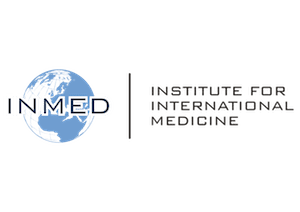Forum Replies Created
-
AuthorPosts
-
 Abigail ZikmundParticipant
Abigail ZikmundParticipantQuestion #1: From your perspective, why are people living in poverty most likely to suffer from TB, and how should this fact influence efforts to control the disease?
Tuberculosis is more likely to be found among communities of poverty due to its spread by close contact. Moreover, people living in poverty are less likely to receive proper healthcare for their condition, which causes greater health issues and continued spread of the disease. The best effort to disease control would be treating those who are infected so that they don’t continue to spread this disease to others. This could also include testing sites for people to know if they are infected by this disease or not.
Question #2: What, in your opinion, are two interventions that would be most effective against neglected tropical diseases?
Many of the neglected tropical diseases are endemic to certain countries that lack basic access to resources like clean water, housing, proper food, and medical care. Tropical diseases have many different means of transmission, but working towards providing basic access to resources is the first step in intervening against tropical diseases. Providing clean water and proper nutrition are preventative measures against disease transmission. The second best intervention would be providing proper medical and medications/vaccinations, but I feel like this is a more difficult approach to neglected tropical diseases. The first step to this intervention would be widespread vaccinations among communities that have known endemic diseases. It could also include providing mosquito nets to be used at night when people sleep. These may seem like small or basic interventions, but clean water, food, and housing are the most basic needs of human beings. Abigail ZikmundParticipant
Abigail ZikmundParticipantTaylor, I agree with you on the fact that reducing waste on an individual scale would improve food security. An interesting thought is what to do with all of the food waste that is accumulated in grocery stores, as it is fresh fruits/vegetables that don’t get sold or processed items that expire before people buy them. I would like to see grocery stores distribute this leftover food to food pantries or soup kitchens when appropriate so that this food doesn’t just go to waste and get thrown away.
 Abigail ZikmundParticipant
Abigail ZikmundParticipantQuestion #1: What system-wide changes, in your opinion, would most successfully increase world-wide food security?
I think that world-wide food security must start on a much smaller scale with individual farmers in their own countries. Teaching communities various agricultural practices to overcome changing climates and weather patterns that affect the growth of their crop could be passed down among generations. Education is a powerful tool. Rural areas are typically the most poverty-stricken and have the poorest access to resources. Therefore, overcoming these barriers by setting up programs to teach individuals about sustainable farming could end food insecurity slowly but surely.
Question #2: What do you believe are the most substantial barriers to global measles elimination and how can these be overcome?
The best means of eliminating measles is by preventing it in the first place, which is the purpose of vaccines. However, many individuals are not routinely seen by a primary care providers and do not receive vaccines on a schedule. Also, in areas of extreme poverty, there are greater health concerns that need to be dealt with first, including malnutrition, infection, etc. Therefore, education about prevention by vaccines is a key component to measles elimination. In areas where there is a lack of healthcare access, volunteer health organizations could target these areas and set up clinics for vaccine administration. Abigail ZikmundParticipant
Abigail ZikmundParticipantHello! My name is Abby Zikmund, and I am a 2nd year student at ATSU-KCOM in Kirksville, MO. My previous healthcare experience includes working as a certified nurse assistant on a medical/surgical unit at Sanford Health in Fargo, ND for 3 years. I was also a medical assistant at a dermatology clinic during my gap year between undergrad and medical school. I have also shadowed physicians and other healthcare professionals in multiple different subspecialties. I have been on a week-long medical mission trip to Lima, Peru, where my mission team set up a clinic to care for a particular underserved community. I am taking this course because I would like to make medical missions an integral part of my future career. I am interested in family medicine, and I think that the knowledge gained from this course will help me to be a more well-rounded physician.
-
AuthorPosts
